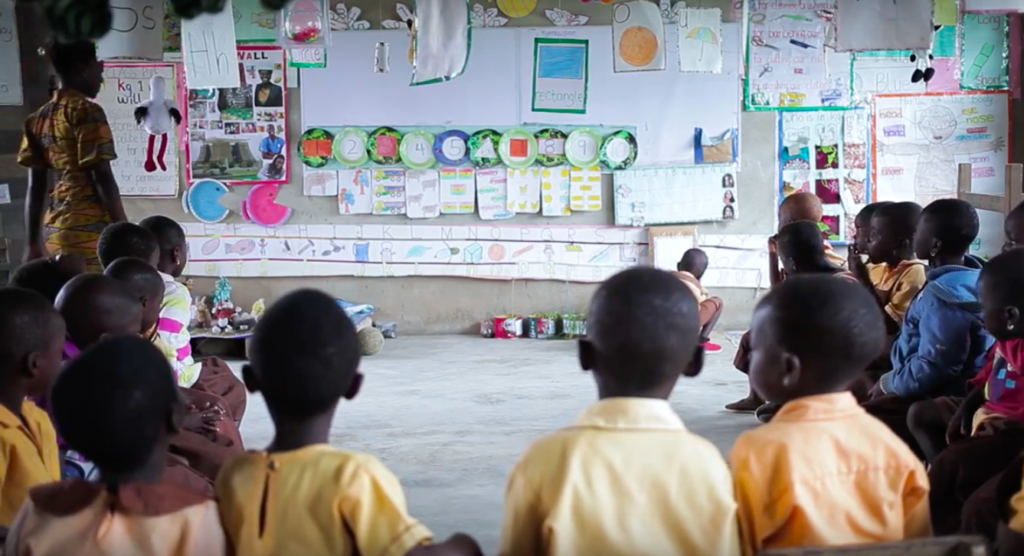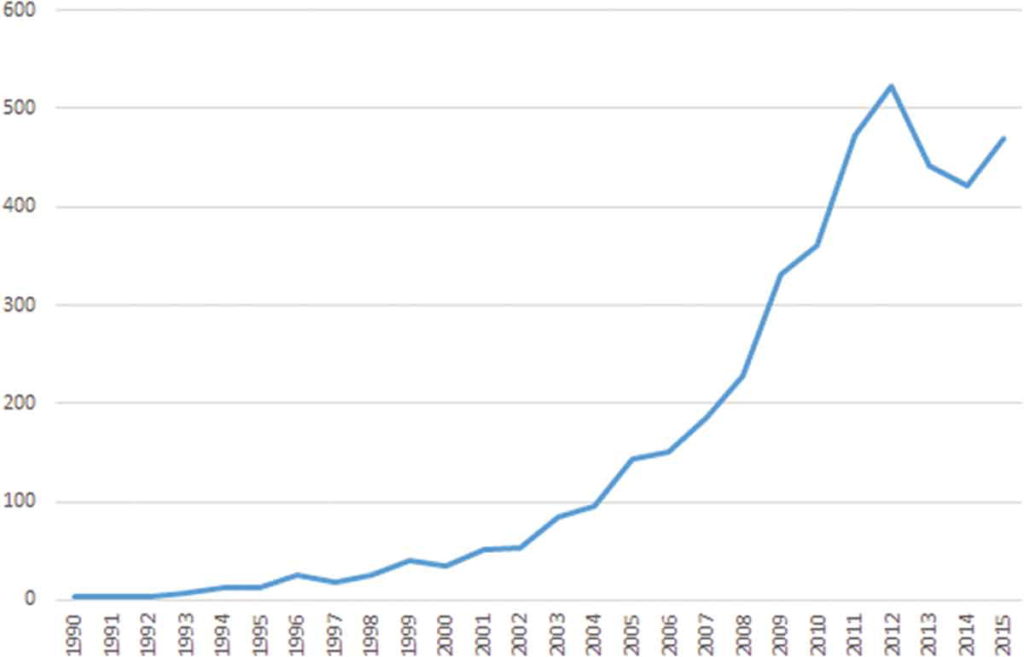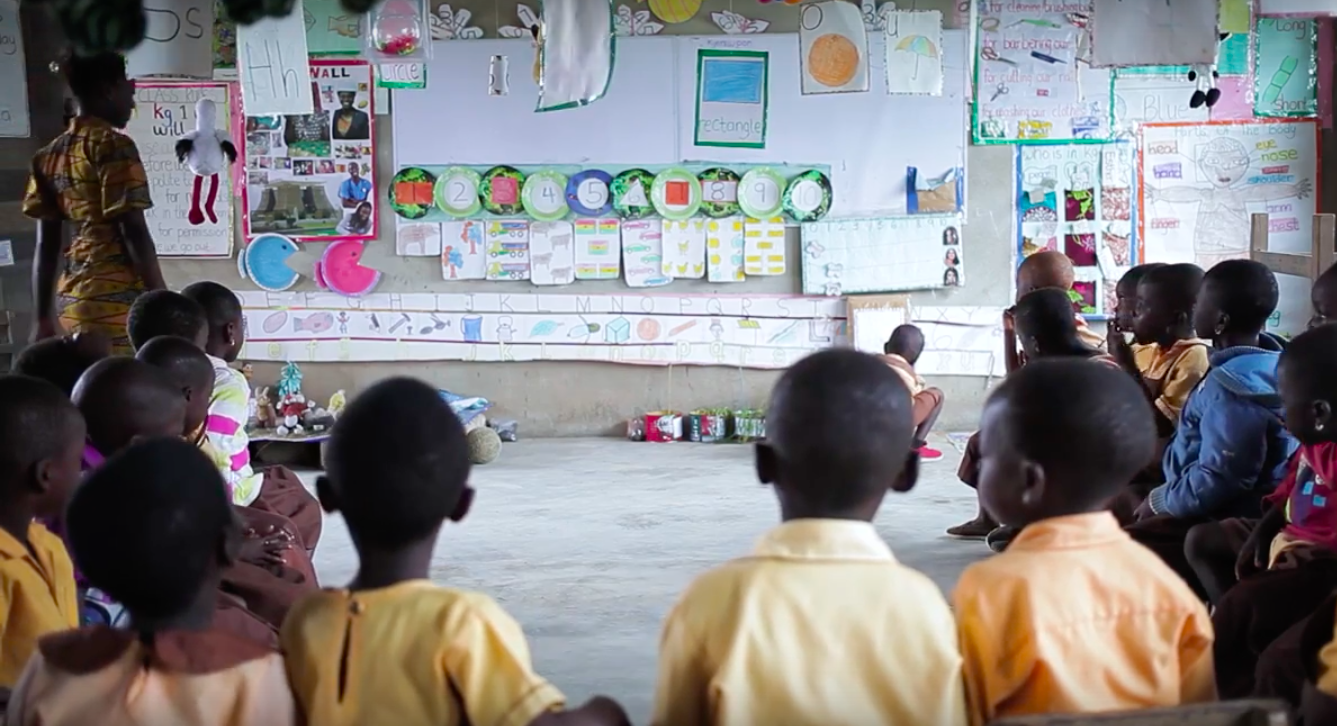Guest post by Jeff Mosenkis of Innovations for Poverty Action.

“Back in school we used to call it chew and pour,” he says. Meaning, for each possible question, the teacher gives you one correct answer to memorize — or “chew” — so that come test time, you can regurgitate it — “pour it” back to her verbatim.
“And then,” adds Agbavor with a chuckle, “you forget about it. Nothing is retained.”
- That’s from one of my favorite podcasts, NPR’s Rough Translation, which is hosted by their former East Africa correspondent, and is back for another season. In a great episode, they talk to UPenn education researcher Sharon Wolf about her work with some of my IPA colleagues in Ghana trying to improve preschools, and an unexpected wall they ran into from the people most invested in it (web audio & article, iTunes).
- Sharon reflects on some of the findings in a blog post here.
- 3ie has updated their count of impact evaluations over time and by source. As Shayda Mae Sabet and Annette N. Brown report, there’s been a small dip in recent years:

- Also Annette, Ben Wood, & Rui Müller report their findings trying to verify development econ findings (even when materials are required by journals). I’ll let Brian Nosek summarize:
Results: 109 articles, 27 push button replicable. 59 authors refused to provide replication files. 30 of the 59 were published in journals requiring sharing. Of remaining 23, 3 had proprietary data, 15 had incomplete code, and 5 had minor differences in the replication results.
— Brian Nosek (@BrianNosek) June 20, 2018
- But, (prompted by some of Justin Sandefur’s excellent live tweeting of the RISE education conference) Heather Lanthorn, Akib Khan, and I had a conversation on a more basic question – where do the implementation details get reported? How can a program be realistically copied or tested in another context when there’s no mechanism for saving or reporting how a program was run?
- Jobs: Want to answer those and more practical questions on science, implementation, and scaling? Check out these jobs at a new Yale center for better understanding how to scale effective interventions (Director, and Program and Communications Manager). The initiative will be led by Mushfiq Mobarak, who has been very thoughtful about these issues on projects including the GiveWell-recommended “No Lean Season” incentives for seasonal migration program.
- Also from RISE, David Evans describes the reaction when Karthik Muralitharan got up in front of the crowd and dropped the bas(eline). Muralitharan explains that under some conditions (particularly when working with governments and the project might never be implemented correctly anyway), it might makes more sense to put the money into good randomization and a bigger endline. He expands on it here.
- Mayan kids have a much longer attention span than American kids which psychology researchers attribute to parenting styles that promote the child’s autonomy.
And a brief moment of appreciation for an international news headline writer (via Colin Campbell)



8 Responses
awesome post!!
Thanks a lot for sharing interesting articles here.
nice information …
good
good
good
good
good
good